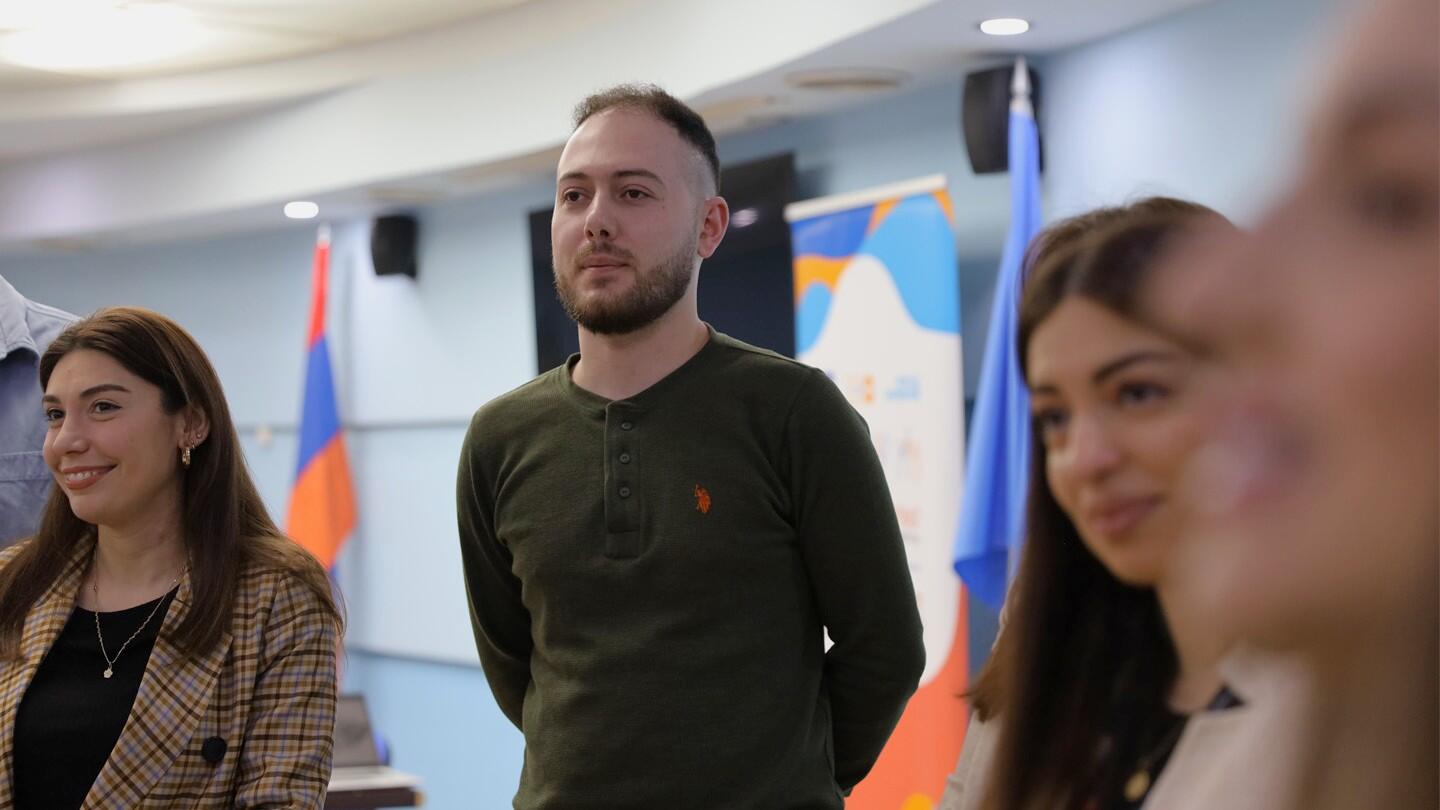Around twenty doctors, psychologists, and social workers from the Médecins du Monde Armenia explored gender-based violence (GBV) prevention policies and mechanisms, focusing on best practices and effective response strategies in a workshop organized as part of the second phase of the “EU 4 Gender Equality: Together Against Gender Stereotypes and Gender-Based Violence” programme.
"Survivors of violence often do not disclose their true experiences and seek medical help without mentioning the episodes of abuse. It is crucial for us to properly identify such cases, recognize the effects of violence, and refer them to the appropriate specialists. Doctors, in particular, need not only general medical knowledge but also specific skills to work with survivors of violence. At the same time, increasing public trust in support systems is essential, as it encourages reporting, response, and prevention efforts," said Mikayel Apinyan, a participating doctor.
Through practical discussions, the workshop participants analyzed effective methods for supporting survivors, as well as mechanisms for data collection and monitoring.
"Awareness is a key tool in ensuring a competent response to cases. Working with cases of violence is particularly challenging in rural areas, where we encounter social stereotypes. During this discussion, we also addressed the possibilities of changing these perceptions. For me, the legal aspect of the workshop was also important, as survivors often feel a sense of injustice and need protection. If a psychologist becomes the only person a survivor trusts, they should also be able to provide proper legal guidance. This workshop allowed us to gain knowledge and discuss social and psychological approaches with professionals from different fields," said Marina Aghumyan, a psychologist.
The workshop also focused on positive parenting and healthy family relationships, emphasizing the role of active and responsible fatherhood in eliminating harmful social norms. Participants explored how shared caregiving responsibilities contribute to gender equality and how fathers can serve as role models for their children’s physical and emotional well-being.
Gayane Mesropyan, a social worker, highlighted the importance of effective collaboration with state and community structures. "Women who experience violence often find it difficult to speak up about their problems. This training allowed us to examine relevant cases, share our experiences, and develop more effective practical skills. Having worked in child protection for many years and now shifting my focus to women's protection, I find this knowledge invaluable in providing better support," she said.
The participants stressed the importance of ongoing capacity-building initiatives ensuring continuous knowledge and experience-sharing.
"Such training sessions are crucial for equipping frontline professionals with the necessary tools to effectively respond to gender-based violence cases and promote positive change within communities," said Taguhi Harutyunyan, Program Analyst at UNFPA Armenia.
The workshop concluded with a discussion of best practices and a renewed commitment to developing a more comprehensive and supportive approach to combatting gender-based violence in Armenia.
This publication was produced within the “EU 4 Gender Equality: Together against gender stereotypes and gender-based violence" programme (phase 2), funded by the European Union, implemented jointly by UN Women and UNFPA. Its contents are the sole responsibility of UN Women and UNFPA and do not necessarily reflect the views of the European Union.


